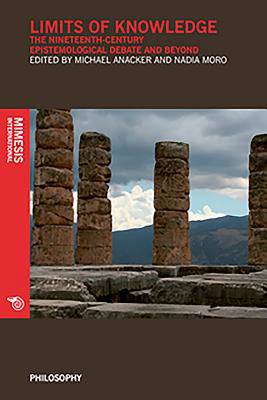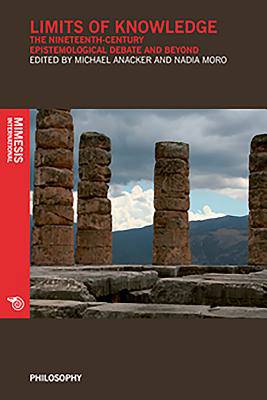
- Afhalen na 1 uur in een winkel met voorraad
- Gratis thuislevering in België vanaf € 30
- Ruim aanbod met 7 miljoen producten
- Afhalen na 1 uur in een winkel met voorraad
- Gratis thuislevering in België vanaf € 30
- Ruim aanbod met 7 miljoen producten
Zoeken
Limits of Knowledge
The 19th Century Epistemological Debate and Beyond
€ 45,95
+ 91 punten
Omschrijving
With his talk on the limits of natural knowledge in 1872 ("Ignorabimus! We will never know!"), Emil du Bois-Reymond stirred up a controversy (the Ignorabimus-Streit), which spread widely beyond German-speaking countries. It concerned the very possibility to set boundaries to knowledge, the development of the sciences, their attainable results, and concept formation. In this volume, the philosophical value of the Ignorabimus controversy is critically examined. The historical matter and its theoretical implications are assessed with regard to the mutual relationships between philosophy and the sciences in the 19th century and beyond.
Specificaties
Betrokkenen
- Uitgeverij:
Inhoud
- Aantal bladzijden:
- 242
- Taal:
- Engels
- Reeks:
Eigenschappen
- Productcode (EAN):
- 9788869770135
- Verschijningsdatum:
- 16/03/2016
- Uitvoering:
- Paperback
- Formaat:
- Trade paperback (VS)
- Afmetingen:
- 137 mm x 208 mm
- Gewicht:
- 589 g

Alleen bij Standaard Boekhandel
+ 91 punten op je klantenkaart van Standaard Boekhandel
Beoordelingen
We publiceren alleen reviews die voldoen aan de voorwaarden voor reviews. Bekijk onze voorwaarden voor reviews.










